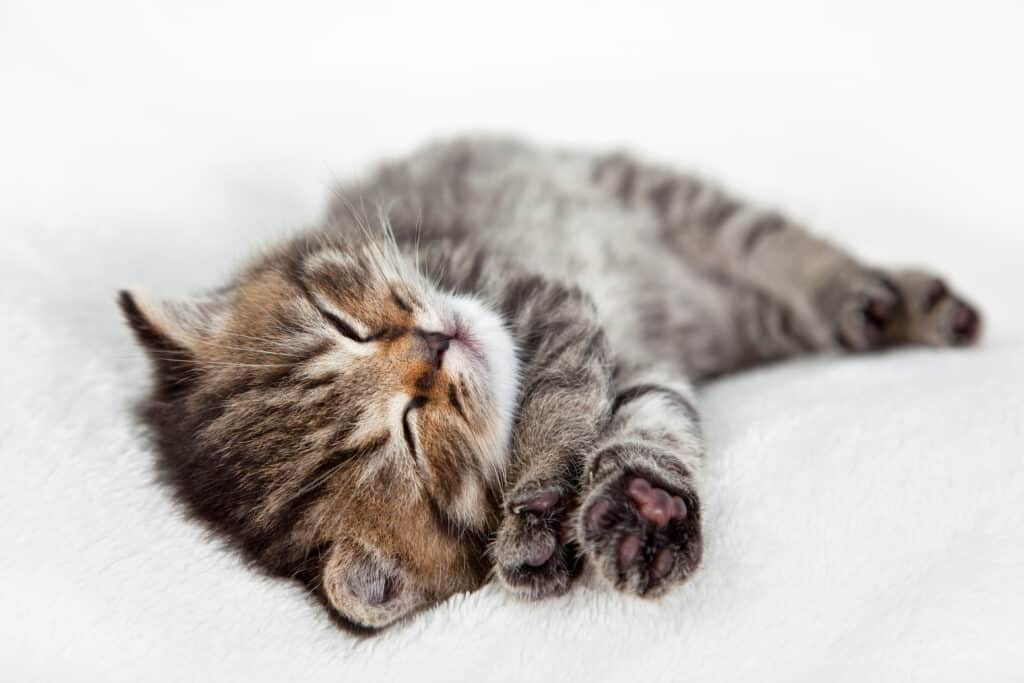Pancreatitis in Cats - Pancreatitis: A Guide for Concerned Cat Owners
pancreatitis , also known as feline pancreatitis, is a serious and potentially life-threatening condition that definitely deserves attention. If you are a cat owner, you should be aware of this condition so you can help your beloved pet if needed. In this article, we take a closer look at the causes, symptoms, diagnostic procedures, and treatment options for this condition.

causes
The exact cause of pancreatitis/pancreatitis in cats is often difficult to determine, but there are some known contributing factors:
- High-fat diet
- Medication
- Trauma or injury
- Infections, especially bacterial infections
- Parasites
Symptoms of pancreatitis in cats
Symptoms of pancreatitis in cats can vary from mild to severe. Here are some of the most common signs:
- Loss of appetite
- Lethargy or weakness
- Dehydration
- Vomit
- Diarrhea
- weight loss
- Abdominal pain or tenderness
Diagnosis of pancreatitis in cats
Diagnosing pancreatitis/pancreatitis in cats can be difficult because the symptoms are often non-specific. A veterinarian will typically perform a series of tests to make the correct diagnosis:
- Blood tests to check levels of pancreatic enzymes and other signs of inflammation
- Ultrasound to examine the pancreas and surrounding structures
- X-rays to rule out other possible causes of symptoms
- In some cases, a biopsy of the pancreas may be necessary to make an accurate diagnosis
Treatment options for pancreatitis in cats
Treatment for pancreatitis in cats depends on the severity of the disease and the individual needs of the cat. Some possible treatment approaches include:
- Fluid therapy to prevent dehydration and support organ function
- Painkillers to relieve discomfort and inflammation
- Antiemetics to control nausea and vomiting
- Antibiotics if a bacterial infection is present
- Feeding an easily digestible, low-fat diet to reduce stress on the pancreas
- In severe cases, inpatient treatment in a veterinary hospital may be necessary
Prevention of pancreatitis in cats
Although there is no guarantee that cat pancreatitis can be prevented, there are some steps that can help reduce the risk:
- Feed your cat a balanced, low-fat diet
- Avoid abrupt food changes and excessive treats
- Keep your cat away from toxic substances and medications that can increase the risk of pancreatitis
- Regular vet visits for early detection of problems
Frequently asked questions (FAQs) about pancreatitis in cats
Is pancreatitis in cats contagious?
No, feline pancreatitis is not contagious and cannot be passed from one cat to another.
Can pancreatitis in cats be cured?
The prognosis for cats with pancreatitis varies depending on the severity of the disease and the underlying cause. In many cases, cats can recover with proper treatment and care.
How long does it take for a cat to recover from pancreatitis?
Recovery time depends on the severity of the disease and the cat's individual response to treatment. Some cats recover within days, while others may need weeks or even months.
Conclusion
Pancreatitis in cats is a serious condition that should be on the radar of both cat owners and veterinarians. Knowing the causes, symptoms, and treatment options is essential to providing your furry friend with the best possible care when needed. By educating yourself about this condition and taking proactive steps to prevent it, you can help minimize your cat's risk of pancreatitis and help him live a long, healthy life. Should you notice any signs of pancreatitis in your cat, do not hesitate to consult your veterinarian immediately to ensure appropriate diagnosis and treatment.
In summary, pancreatitis in cats is a complex disease that requires rapid action and comprehensive knowledge. As a responsible cat owner, you should be vigilant and watch for possible signs of this condition. Early detection and treatment of pancreatitis in cats can be crucial to preventing long-term damage and complications.
In this regard, working with your veterinarian is crucial. Regular check-ups and open communication about possible symptoms and concerns are essential to ensure your cat's well-being. In addition to treating pancreatitis, it is important to identify and address underlying causes and risk factors to reduce the risk of the disease recurring.
Comprehensive education about the disease, its signs and symptoms, as well as its treatment and prevention is essential to keeping your cat in top health. By actively caring for your cat's well-being, you will help maintain their quality of life and prevent possible future health problems. So stay vigilant and pay attention to your cat's well-being to protect him from the potential dangers of pancreatitis.
